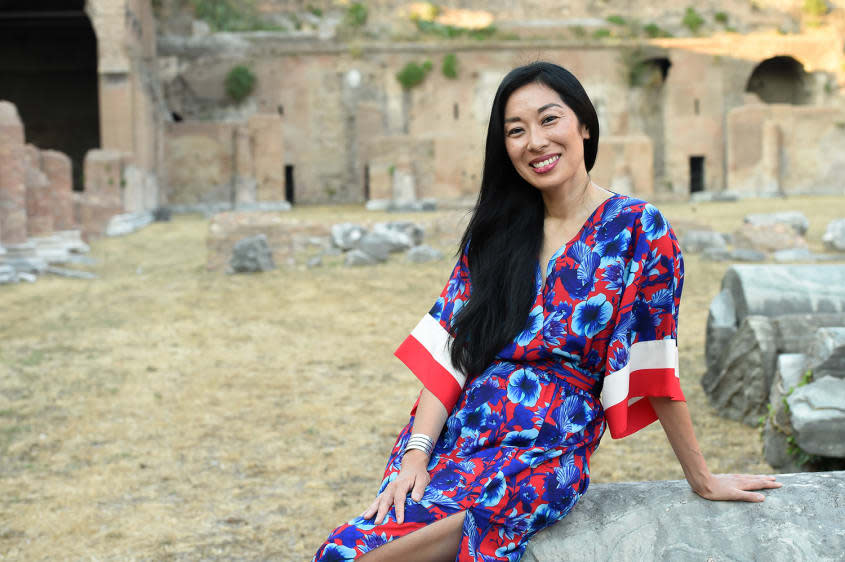Katie Kitamura's 6 favorite books with sentimental themes

- Oops!Something went wrong.Please try again later.
- Oops!Something went wrong.Please try again later.
- Oops!Something went wrong.Please try again later.
Katie Kitamura's Intimacies, now out in paperback, is about a woman assigned to be the translator for a former ruler on trial in The Hague for war crimes. The New York Times named the novel one of the 10 best books of 2021.
The Dry Heart by Natalia Ginzburg (1947)
One of my favorite novels by one of my favorite writers. The opening page — in which a woman matter-of-factly reveals that she has shot her husband — is extraordinary. And the novel carries on from there, a tumult of dread and horror, right through to the end. Buy it here.
Mothercare: On Obligation, Love, Death, and Ambivalence by Lynne Tillman (2022)
For more than a decade, Tillman, a novelist and critic, cared for her sick and aging mother. This extended meditation on care, family, love, and duty upends all easy assumptions. Scrupulously honest, Tillman explores the dynamics of power at work in both our health-care system and our familial relationships. Buy it here.
Mrs. Palfrey at the Claremont by Elizabeth Taylor (1971)
This book is a wonder: exceptionally bleak, yet humane and darkly humorous. Taylor is a supremely unsentimental writer, and yet Mrs. Palfrey at the Claremont, a story about a widow who moves into a retirement hotel in London, is full of emotion, proving that the two traits are not mutually exclusive. Buy it here.
Territory of Light by Yuko Tsushima (1979)
This devastating novel about a single mother in Japan is composed of 12 stories that were originally published serially. By closely observing the reality — financial, logistical, and emotional — of its central character, Territory of Light builds into a powerful indictment of Japanese society and its treatment of women. Buy it here.
All the Lovers in the Night by Mieko Kawa-kami (2022)
Kawakami is a singular writer, and her prose has a ferocious energy. This novel was something of a surprise in its quiet tenderness, but like all Kawakami's work it is about being an outsider, about loneliness, longing, and the refusal to conform. Buy it here.
The Mushroom at the End of the World: On the Possibility of Life in Capitalist Ruins by Anna Lowenhaupt Tsing (2015)
I was captivated by this study of the commerce, science, and culture around the matsutake mushroom. Tsing's book is full of exhilarating lateral shifts. Reading it, you find yourself in unexpected places: with mushroom pickers in the Pacific Northwest and at fine-dining establishments in Japan. Buy it here.
This article was first published in the latest issue of The Week magazine. If you want to read more like it, you can try six risk-free issues of the magazine here.
You may also like
Why Russia's efforts to replenish its depleted armed forces may not matter much in Ukraine

